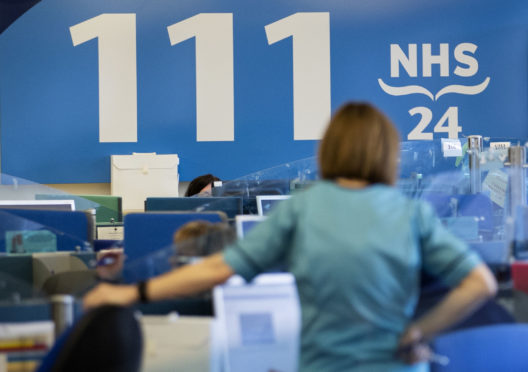
Nine new cases of coronavirus have been confirmed in Scotland, raising the total number of patients by a third.
The latest daily 2pm update from the Scottish Government said that, of the 2316 tests carried out north of the border so far, 36 had come back positive.
The NHS Lothian area has the highest number of cases, with eight confirmed, while there are six in NHS Grampian and five in the Greater Glasgow and Clyde NHS board area.
A further four cases have been detected in the Lanarkshire area, as well as three in Ayrshire and Arran, and two each in NHS Borders, NHS Fife, NHS Forth Valley, NHS Shetland and NHS Tayside.
Update on #coronavirus testing
As of 2pm today, 2316 Scottish tests have concluded:
2280 confirmed negative
36 positiveRead our latest update
https://t.co/kZjGNz2EDe
Health advicehttps://t.co/l7rqArB6Qu
Guidance for travelhttps://t.co/5DPKW9lGae#COVIDー19 pic.twitter.com/Dnl2vWIHRl
— Scottish Government (@scotgov) March 11, 2020
The number of confirmed cases in the UK has risen from 373 to 456 in the largest day-on-day increase since the outbreak began.
It is a jump of 83, which is 22% up on the equivalent figure for Tuesday.
This morning, Scotland’s Health Secreatary Jeane Freeman warned that the NHS may need to draft in thousands of trainee doctors and nurses to cope with staff absence rates of 30% due to the coronavirus outbreak.
She said the Scottish Government is looking to double the number of intensive care units available due to the spread of the virus.
That will be achieved by making “difficult decisions” to scale down elective work in the NHS, such as hip and knee replacement surgeries.
The Health Secretary detailed the measures as she revealed that the UK could shortly see cases of Covid-19 being spread by community transmission – rather than arising from someone having travelled to an area where the disease is prevalent, or having close contact with someone already infected.
“We expect to see shortly cases coming forward that are originating from that community transmission,” Ms Freeman told BBC Radio Scotland’s Good Morning Scotland programme.
She said NHS modelling showed that the virus could result in an absence rate of between 25% and 30% among health service workers – and that dealing with infected patients left NHS workers at “greater risk” even with protective equipment.
To help cope with staff shortages, the NHS is now looking at how recently-retired staff can return to work, as well as how those who are almost qualified can help.
Ms Freeman said there are “something like 3,000 available nursing students” as well as year five medical students.
She said that in stepping up they would only be asked to do what they are trained to do and no more.
But she said they could play an “important role” in caring for those who become sick.
The Health Secretary spoke out as she said the authorities are “genuinely doing everything we possibly can to prepare for this”.
She said: “We have active work going on looking at how we can increase the number of beds available in our hospital settings, doubling the number of intensive care units that we have and equipping them and staffing them.”
Explaining how that could happen, she said: “You start to make difficult decisions about NHS care that is critical to life – that would be cancer treatment, transplants, maternity care – from NHS care that is not critical to life. That is some of our elective work, the replacements of knees, hips and so on.
“You start to scale down the non-critical in order to free up the space for the critical.
“That is where you get additional bed space but you also can get additional intensive care space.”
But with as many as 80% of people potentially becoming infected in the worst-case scenario, Ms Freeman said people must be clear “that we will not be able to make this go away”.
“There will be difficulties and all of us, the way we live our lives is going to change for a period of time,” she said.
“People need to think about in what way they can offer additional help to their neighbours or their families, while we try to make sure that professional help that is there … to protect those who are most vulnerable and care for those who become sickest.”
Meanwhile, First Minister Nicola Sturgeon saw how video technology could be used to help patients.
The Scottish Government is investing more than £3 million in scaling up the NHS Near Me system, which currently allows patients to have consultations with hospital consultants via video link.
In the wake of the coronavirus outbreak it is being expanded to allow GP consultations to take place this.
Ms Sturgeon tweeted the move “will be essential to help reduce face to face contact should there be significant increases in the need for self-isolation”.

Enjoy the convenience of having The Sunday Post delivered as a digital ePaper straight to your smartphone, tablet or computer.
Subscribe for only £5.49 a month and enjoy all the benefits of the printed paper as a digital replica.
Subscribe